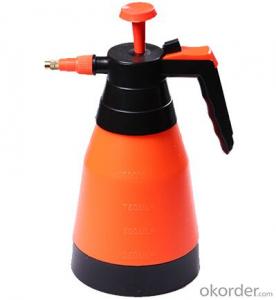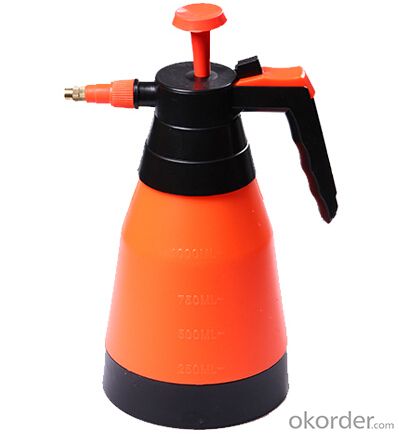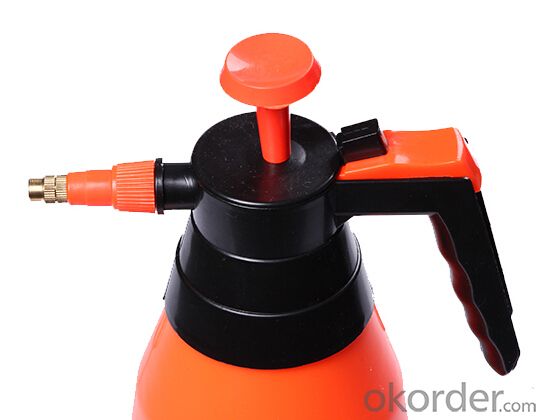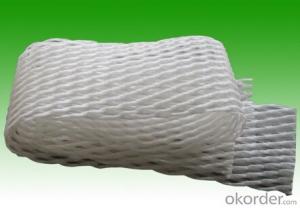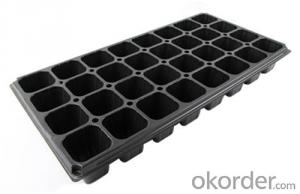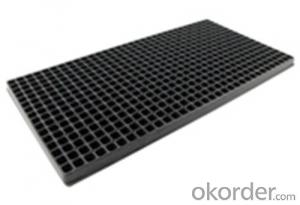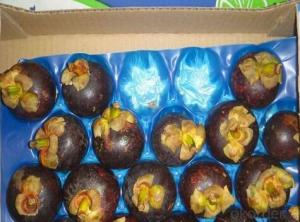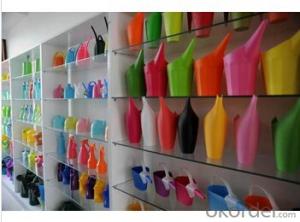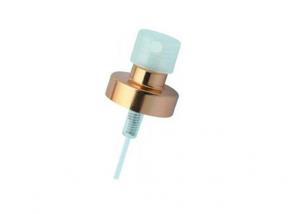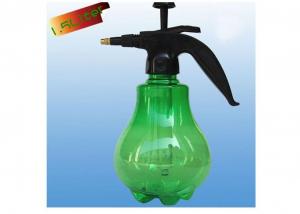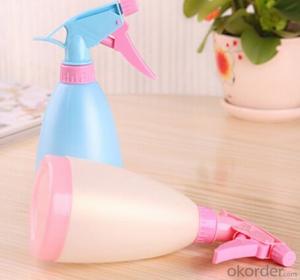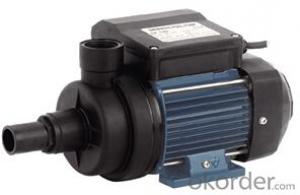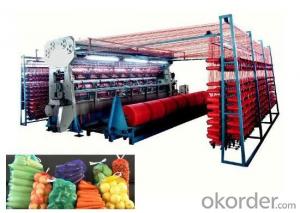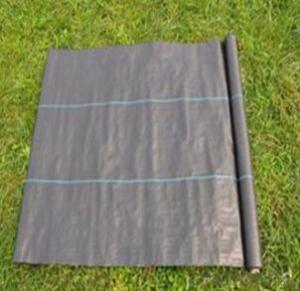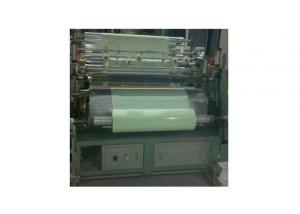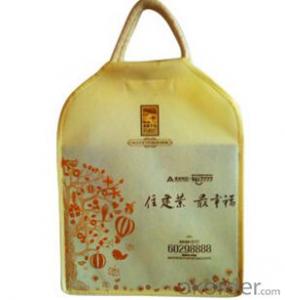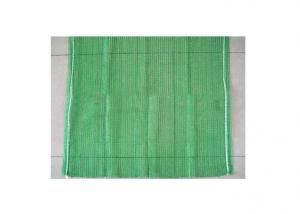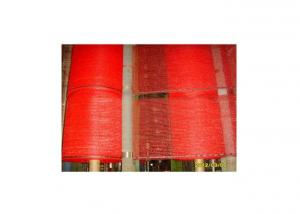Plastic Watering Can with Prussure Sprayer
- Loading Port:
- Ningbo
- Payment Terms:
- TT OR LC
- Min Order Qty:
- 1000 pc
- Supply Capability:
- 500000 pc/month
OKorder Service Pledge
OKorder Financial Service
You Might Also Like
Description :
1. For watering flowers
2. For watering vegetables
3. For watering small green plants
Specification:
Part Name:watering can
Material:PP
Color:Head-black;Bottle-orange
Size:125(dia.)×27mmH
Capacity:1L
Sample Time:Existing3 Days
Customized:30 Days After Order
Customized LOGO:Yes, We Can
Part N.W.:325.1g;
Min Qty1000PCS
Production Capacity50,000PCS/Month
Payment Terms:T/T, L/C, D/P, D/A
Delivery Port:Ningbo/Shanghai
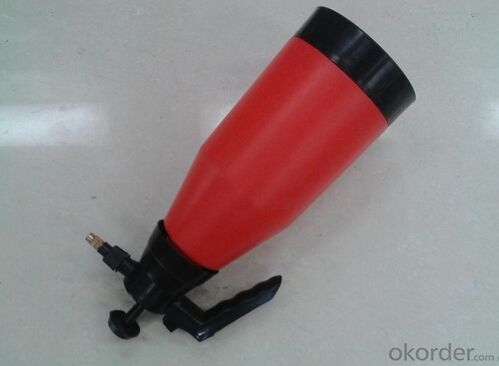
Service:
1).We have our own factory with mold production workshop, injection molding and blow molding workshop.We develop at least 5 new watering can every year.
2).Same design, better quality; Same quality, better price; Same price, better after-sale service.
3).Quality control: we execute strictly according to ISO9001:2001 quality control system, with experienced technician help us reduce the defective percentage effectively, control the quality.
FAQ:
What's your advantages?
1. Can supply with both Mold & Molded parts
2. Provide Milled Prototype Making, Mold Design, Mold Making, Mold Testing, Molding, Products assembly...services
3. With more than 25 years experience
4. Low volumes / Small orders are welcome! Please contact us to discuss case by case.
5. Accept only OEM / ODM / Customer Projects. We do not have any existing molds for sell.
6. Mold building lead time: Around 40-50 days, with 1st Mold trialing report and Mold trailing samples
- Q: What are some ground cover options for wet soil?
- Some ground cover options for wet soil include marsh marigold, cardinal flower, creeping Jenny, and sweet flag.
- Q: What are the benefits of using plastic plant pots for nursery plants?
- There are several benefits to using plastic plant pots for nursery plants. Firstly, plastic pots are lightweight and easy to handle, making them convenient for transporting and rearranging plants. Additionally, plastic pots are durable and long-lasting, ensuring that they won't break or deteriorate easily. Plastic pots also provide good insulation, protecting the roots of the plants from extreme temperatures. Moreover, plastic pots retain moisture better than other materials, reducing the frequency of watering required. Lastly, plastic pots are cost-effective and readily available, making them a practical choice for nursery plants.
- Q: What are some ground cover options for full sun?
- Some ground cover options for full sun include creeping thyme, sedum, creeping phlox, and moss rose.
- Q: Hello guys ~~~got a questoin about plastic bags someone told me there are two types of plastic bags low density plastic bags and high density plastic bags does someone know which one use less material to produce most of people told me the low density plastic bags are more quot; greenerquot; than high density plastic bags but i found something from a website, it says : our low density plastic bags use 50 % of recycled materials, does that mean low density bags are more greener than hgih density if they use different materials???thanks
- You are probably refering to two forms of the plastic polyethylene, high and low density. Low density is probably the 'greener' of the two, but it can't be by much.
- Q: Are nursery trays suitable for starting vegetable seedlings?
- Yes, nursery trays are suitable for starting vegetable seedlings. They provide a controlled environment with proper drainage and space for seedlings to develop healthy root systems. Additionally, they allow for easy monitoring and transportation of the seedlings as they grow.
- Q: That you don't have to separate the plastics by number? What do they use plastic bags for anyways? I've seen them made into benches. It's kinda dissapointing that something that might have been recirculated back into plastic manufacturing was made into a bird-poop infested bench.Why don't they use plastic bags into something useful? Or do they? Like recirculate them back into virgin plastic? Would that require separation of #2 and #4 plastics?
- Don't really know, but here in UK the larger supermarkets have a collection point for carrier bags, so I stuff all my plastic bags there inside a carrier bag.
- Q: Do nursery trays have handles?
- No, nursery trays typically do not have handles.
- Q: How are plastic seed trays used in nursery operations?
- Plastic seed trays are commonly used in nursery operations for starting seeds and propagating plants. These trays provide a controlled environment for seed germination and growth, offering protection from the elements and pests. The trays are filled with potting soil or seed starting mix, and seeds are sown in individual cells or compartments. The trays are then placed in a greenhouse or a protected area where they receive adequate sunlight, moisture, and warmth for optimal seedling development. Once the seedlings have grown and are ready for transplantation, they can be easily removed from the trays without disturbing the roots, ensuring a smooth transition into larger containers or the ground. The reusability and durability of plastic seed trays make them a cost-effective and efficient tool in nursery operations.
- Q: What are the rules or suggestions for using plastic mulch in organic farming?
- <p>Yes, there are specific regulations and guidelines for using agricultural plastic mulch in organic farming. Organic farming standards vary by country, but generally, they aim to promote sustainable and natural farming practices. In many regions, the use of synthetic plastic mulches is not allowed in organic farming because they are not biodegradable and can cause environmental pollution. Instead, organic farmers are encouraged to use natural mulches like straw, grass, or leaves, which decompose and enrich the soil. However, some organic certification programs may allow the use of certain biodegradable or compostable mulches under specific conditions. It is essential to consult the organic certification standards applicable in your region for precise guidelines.</p>
- Q: What are the regulations regarding the use of agricultural plastic in various countries?
- <p>Yes, various countries have implemented regulations on the use of agricultural plastic to mitigate environmental impacts. In the European Union, the Directive 94/62/EC regulates the use of plastic materials in contact with food, while the Single-use Plastics Directive aims to reduce pollution. In the United States, the Food and Drug Administration (FDA) oversees the safety of food packaging, including agricultural plastics. China has strict regulations on the production and use of agricultural films, promoting biodegradable alternatives. Other countries may have specific guidelines or bans on certain types of agricultural plastics, reflecting a global trend towards sustainability and environmental protection.</p>
Send your message to us
Plastic Watering Can with Prussure Sprayer
- Loading Port:
- Ningbo
- Payment Terms:
- TT OR LC
- Min Order Qty:
- 1000 pc
- Supply Capability:
- 500000 pc/month
OKorder Service Pledge
OKorder Financial Service
Similar products
Hot products
Hot Searches
Related keywords
